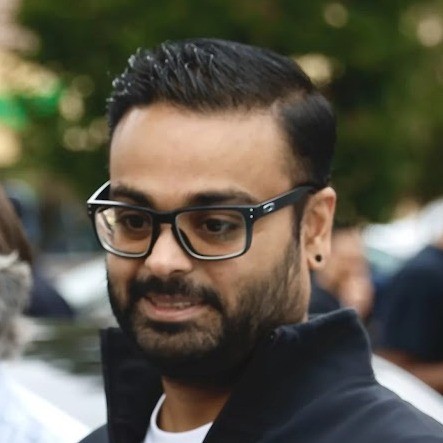Finally, Software Built for
- Clinical Research Coordinators
- Principal Investigators
- Clinical Trial Assistants
- Clinical Research Associates
- Clinical Research Nurses
- CROs
- You
Stop fighting your tools. Start focusing on your patients. Kobo is the intelligent system that reduces paperwork, prevents errors, and lets you focus on doing what you do best.
Get Early AccessThe Reality of Clinical Research Today
Every day, clinical research coordinators battle a system that wasn't built for them. A single protocol amendment can trigger weeks of manual work. One missed checkbox can derail months of effort.
The Protocol Translation Crisis
Teams spend weeks manually reading 150+ page protocols, creating paper binders of source documents for each visit. This is where errors creep in from day one. Entire teams are dedicated to this tedious transcription work that no one should have to do manually.
Amendment Chaos
Protocol changes arrive scattered across emails, memos, formal amendments... never in one place. You read them all and still think: "I don't really know what changed." Then you're left to update dozens of documents by hand, hoping you caught everything.
Reactive, Not Proactive
Current systems only catch mistakes after they happen. You write the wrong timestamp, miss a required lab, use the wrong units... and months later the monitor finds it. Major compliance issue. All you needed was a red flag in the moment; something to guide you. Instead, the current system waits until it's too late.
Hours Lost Searching
A patient needs a dose reduction, a simple question, but you can't just ask the system. You stop everything, pull out the protocol, start searching page after page. Two hours later, you finally find your answer, hidden in an unrelated section. All that time for one simple question.
Double Entry, Lost Data
You write it on paper, then type it into the EDC, doubling your chances for error. That crucial detail the patient mentioned? It's somewhere on a notes page in a binder, effectively lost to the system (until the end of the trial) simply because there's no proper place to capture it.
Fragmented Truth
Principal Investigators check a dozen dashboards across different platforms with different credentials. The recruitment numbers are in the CRM, safety events in the CTMS, patient data scattered across four different sponsor EDCs. Want the full picture? You have to open everything and piece it together yourself.
What If Clinical Research Actually Worked?
Imagine a world where technology actually eliminates paperwork instead of just digitizing it. Where AI empowers coordinators instead of giving them more to manage.
What if instead of spending weeks creating paper source binders from a 200-page protocol ...
We could have AI instantly generate compliant digital source forms for every single visit ?
What if instead of hunting through scattered emails of amendments and manually updating dozens of docs ...
We could automatically show what changed and flag every form that needs updating ?
What if instead of discovering critical errors months later ...
We could have real-time guardrails that flag potential mistakes before they are recorded ?
What if instead of spending two hours re-reading a protocol to answer one question ...
We could ask in plain English and get an instant answer, complete with citations ?
What if instead of writing or typing notes during patient visits ...
We could listen, transcribe, and populate forms while you focus on the patient ?
What if instead of checking many different dashboards to understand your trials ...
We could have one unified view showing everything: recruitment, safety, deviations... all on a single pane of glass ?
Stop Fighting Your Tools. Start Focusing on Your Patients.
We're building the system clinical research deserves. One that reduces burnout, prevents errors, and lets talented coordinators do what they do best: care for patients and advance medical science.
Our Philosophy
We're building the operating system for how clinical research should actually work. Not another CTMS or EDC. Something fundamentally different.
Designed for CRCs and PIs, Not Someone Else
We've spent hundreds of hours shadowing coordinators and PIs, watching them battle with paper binders or outdated interfaces at 7pm on a Friday. Every feature starts with their pain, not a sponsor's wishlist. If it doesn't make your day easier, we don't build it.
AI That Works With You, Not Around You
Our AI doesn't try to be clever; just helpful. It reads protocols so you don't have to spend weeks transcribing them, catches errors before FDA monitors do, and answers questions instantly instead of making you hunt through PDFs, without making anything up. Technology should reduce your cognitive load, not add to it.
Compliance Through Intelligence, Not Checkboxes
We believe perfect compliance shouldn't demand perfect humans. Our system automatically ensures data integrity with a focus on ALCOA: Attributable, Legible, Contemporaneous, Original, and Accurate notes and compliance without you having to think about it. Good Clinical Practice (GCP) isn't an afterthought; it's architected into every interaction.
Our Team
Built by seasoned technologists with a passion for transforming clinical research.

Michael Borohovski
Co-Founder, CEO/CTO
Michael "Borski" Borohovski is a seasoned entrepreneur and enterprise software architect with over two decades of experience building and scaling technology companies. As the founder of Tinfoil Security, he led the company from concept to successful acquisition by Synopsys, a global leader in software security. At Synopsys, he served simultaneously as Director of Software Engineering, Architect, and Principal Engineer, leading architecture for multiple security products. His expertise spans the full company lifecycle - from product vision, engineering, and management to enterprise sales, fundraising, and building world-class teams. Michael drives the strategic vision and commercial execution for Kobo Foundry.

Harsha Kotcherlakota
Co-Founder, Chief Product Officer
Harsha is a product-driven technologist with deep expertise in applying artificial intelligence to solve complex, large-scale problems. He spent seven years at Google, where he was instrumental in managing and optimizing the global infrastructure that powers Google's core services. His work involved operating at immense scale, ensuring reliability and efficiency of one of the world's largest computer systems. With a passion for using AI to create practical, impactful solutions, Harsha leads product and technology development for Kobo Foundry, architecting the intelligent engine that forms its foundation.
Say Hello
We'd love to hear from you. Whether you're a CRC with questions, a site looking for solutions, or just curious about what we're building.